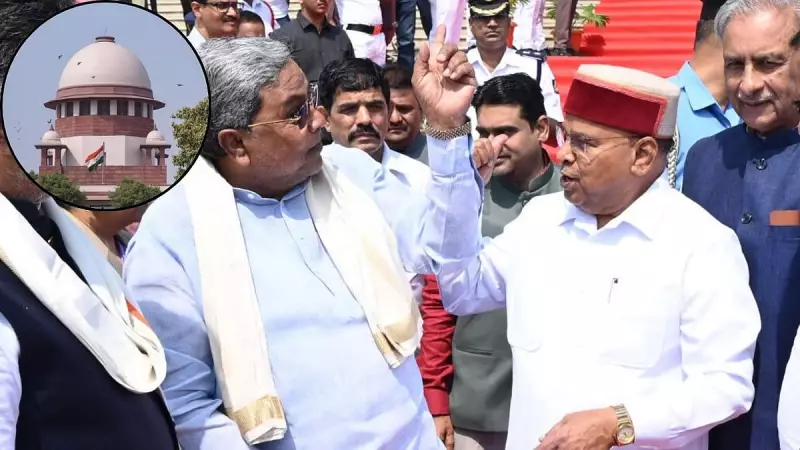
The political landscape in Karnataka faces uncertainty as the state's controversial bill concerning Muslim reservations remains among ten legislative proposals awaiting the President's approval. This delay comes amid a significant Supreme Court clarification that permits constitutional authorities to hold bills indefinitely without time constraints.
Supreme Court Ruling Sparks Democratic Concerns
The Supreme Court's recent judgement has established that the President and Governors can maintain bills for an undefined period without constitutional deadlines. This decision has drawn sharp criticism from political representatives, particularly from the opposition Congress party.
Congress Member of Legislative Council Ramesh Babu expressed strong disapproval of the judicial clarification. 'The Supreme Court judgement allowing the President and Governors to hold on to Bills without a defined time limit is deeply unfortunate and raises serious democratic concerns,' Babu stated emphatically.
Karnataka's Reservation Bill in Limbo
Among the pending legislation, Karnataka's bill addressing Muslim quotas has become a focal point of political attention. The proposed legislation seeks to alter the existing reservation structure in the state, though specific details about the bill's provisions remain undisclosed in the current context.
The bill was passed by the Karnataka Assembly and subsequently forwarded to the central government for the President's assent through the Governor. The absence of a constitutional timeframe for such approvals has created what opposition figures characterize as a democratic loophole.
Broader Implications for Governance
This situation highlights the ongoing tension between state legislatures and central authorities in India's federal structure. With ten bills from various states currently awaiting presidential approval, the Supreme Court's ruling potentially affects governance across multiple regions.
The development raises fundamental questions about the balance of power between different branches of government and the mechanisms ensuring timely implementation of democratically passed legislation. Political observers note that the indefinite holding of bills could significantly impact policy implementation and electoral promises.
As of November 20, 2025, the date when these concerns were formally raised, the resolution remains pending. The Karnataka government continues to await a decision on its reservation bill while legal experts debate the constitutional implications of the Supreme Court's position on bill approval timelines.






